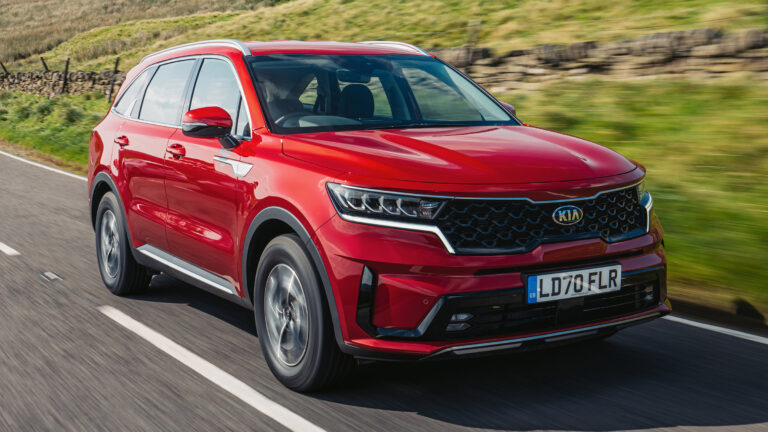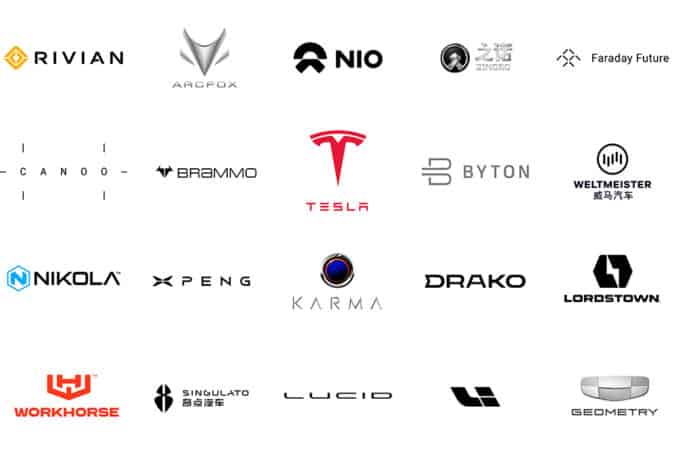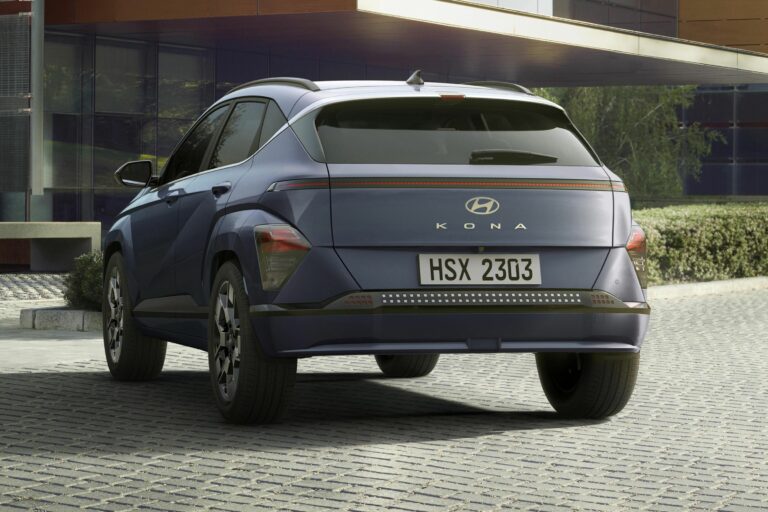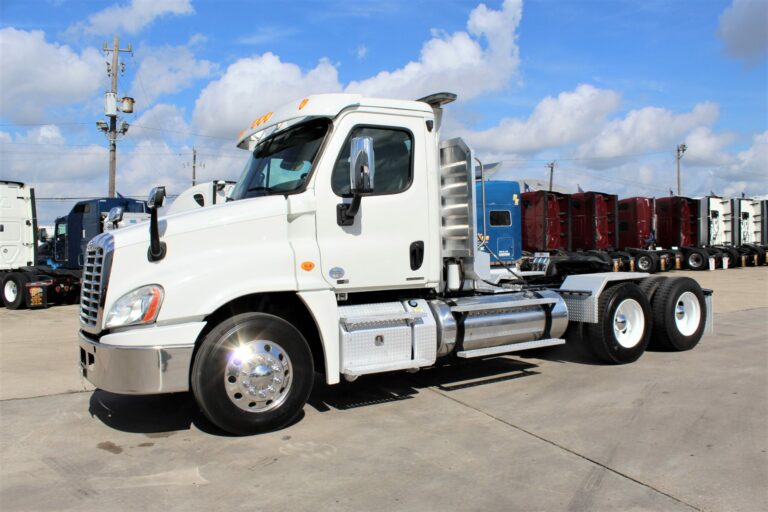The Best Car Brand To Buy: A Comprehensive Guide to Finding Your Perfect Match
The Best Car Brand To Buy: A Comprehensive Guide to Finding Your Perfect Match cars.truckstrend.com
The quest for "The Best Car Brand To Buy" is a journey many embark on, often with a mix of excitement and trepidation. In a market flooded with innovative designs, advanced technologies, and diverse offerings, pinpointing a single "best" brand is akin to finding a universal answer to a deeply personal question. The truth is, there isn’t one definitive "best" car brand for everyone. Instead, the "best" brand for you is the one that most closely aligns with your individual needs, lifestyle, budget, and priorities.
This comprehensive guide aims to demystify the process, shifting the focus from identifying a mythical singular "best" to empowering you with the knowledge and tools to discover the brand that is unequivocally best suited for your unique circumstances. We’ll delve into the critical factors that shape a brand’s appeal, explore the strengths of various manufacturers, and provide practical advice to navigate your purchase journey with confidence.
The Best Car Brand To Buy: A Comprehensive Guide to Finding Your Perfect Match
Understanding Your Needs: The Foundation of Choice
Before you even start looking at specific models or brands, the most crucial step is to look inward. Defining your needs and priorities will serve as your compass, guiding you through the vast automotive landscape.
- Budget Beyond Purchase Price: Your budget isn’t just the sticker price. Factor in insurance costs (which vary significantly by vehicle type and brand), fuel efficiency (or electricity costs for EVs), routine maintenance, potential repair costs, and depreciation (how much value the car loses over time). A seemingly affordable car might become expensive to own if it’s a gas guzzler or has costly parts.
- Lifestyle & Usage: How will you primarily use the vehicle?
- Daily Commute: Prioritize fuel efficiency, comfort, and perhaps advanced driver-assistance systems for traffic.
- Family Transport: Focus on safety ratings, spacious interiors, cargo capacity, child seat compatibility, and ease of entry/exit.
- Adventure/Off-Roading: Look for robust construction, all-wheel drive (AWD) or four-wheel drive (4WD) capabilities, and ground clearance.
- Performance/Enthusiast: Horsepower, handling, acceleration, and a thrilling driving experience will be key.
- Hauling/Towing: Truck capabilities, payload, and towing capacity become paramount.

- Key Priorities: Rank what matters most to you:
- Reliability & Durability: Do you want a car that just works for years with minimal fuss?
- Safety: Are cutting-edge safety features and top crash test ratings non-negotiable?
- Performance & Driving Dynamics: Is an engaging, powerful, or sporty drive essential?
- Luxury & Comfort: Do you seek premium materials, quiet cabins, and advanced comfort features?
- Technology & Innovation: Are you drawn to the latest infotainment, connectivity, or autonomous driving features?
- Environmental Impact: Is reducing your carbon footprint a significant factor, leading you towards hybrids or electric vehicles?
- Resale Value: Is protecting your investment and getting good money back when you sell important?
- Brand Prestige/Image: Does the brand’s reputation and perception matter to you?
Key Criteria for Evaluating Car Brands
Once you’ve defined your needs, you can start evaluating brands based on specific criteria. Different brands excel in different areas, and understanding these strengths will help you narrow your search.
- Reliability & Durability: This is often the top concern for many buyers. Brands known for consistent reliability typically offer lower long-term ownership costs and peace of mind. They tend to have fewer recalls and less frequent, less expensive repairs.
- Brands often cited for high reliability: Toyota, Honda, Lexus, Mazda, Subaru.
- Safety Features & Ratings: Modern cars come equipped with an array of active and passive safety features. Look for brands that consistently earn top safety ratings from organizations like the IIHS (Insurance Institute for Highway Safety) and NHTSA (National Highway Traffic Safety Administration). Features like automatic emergency braking, lane-keeping assist, blind-spot monitoring, and multiple airbags are increasingly standard.
- Brands often cited for safety leadership: Volvo, Subaru, Honda, Toyota, Mercedes-Benz.
- Performance & Driving Dynamics: For those who love to drive, performance isn’t just about speed; it’s about responsive steering, balanced handling, strong braking, and an engaging connection to the road.
- Brands often cited for performance: BMW, Porsche, Audi, Mercedes-Benz (AMG), Mazda (for accessible fun).
- Luxury & Comfort: If a premium experience is what you seek, luxury brands offer superior materials, refined interiors, advanced noise cancellation, plush seating, and sophisticated infotainment systems.
- Brands often cited for luxury: Mercedes-Benz, BMW, Audi, Lexus, Genesis, Cadillac, Lincoln.
- Technology & Innovation: From intuitive infotainment touchscreens and seamless smartphone integration to advanced driver-assistance systems (ADAS) and groundbreaking electric vehicle (EV) platforms, some brands lead the way in technological advancement.
- Brands often cited for technology: Tesla, Mercedes-Benz, BMW, Audi, Hyundai, Kia (especially for EV tech).
- Value & Affordability: This isn’t just about the lowest sticker price. It encompasses the total cost of ownership, including fuel, maintenance, insurance, and the initial purchase. Some brands offer excellent value through competitive pricing, strong warranties, and low running costs.
- Brands often cited for value: Hyundai, Kia, Mazda, Honda, Toyota.
- Resale Value: How well a car holds its value over time significantly impacts your long-term financial health. Brands with strong reputations for reliability and popular demand tend to depreciate slower.
- Brands often cited for strong resale value: Toyota, Honda, Subaru, Porsche, Lexus.
- Environmental Impact: With growing awareness of climate change, many buyers prioritize eco-friendly options. Brands offering a wide range of hybrids, plug-in hybrids (PHEVs), and battery electric vehicles (BEVs) are at the forefront.
- Brands often cited for environmental focus: Tesla, Toyota (hybrid pioneer), Hyundai, Kia, Ford, Chevrolet.
- After-Sales Service & Dealership Experience: The quality of service you receive post-purchase can greatly influence your ownership experience. Research local dealerships for their reputation, service availability, and parts accessibility.
Navigating the Landscape: Brand Categories and Their Strengths
To help you visualize where different brands typically excel, here’s a breakdown by common categories. Remember, many brands now offer vehicles that cross categories (e.g., a luxury brand with an economical EV).
- Economical & Reliable Workhorses: These brands prioritize longevity, low ownership costs, and practicality.
- Examples: Toyota, Honda, Mazda, Hyundai, Kia.
- Best for: Everyday commuters, families on a budget, anyone prioritizing peace of mind and minimal fuss.
- Premium & Luxury Experience: Focus on comfort, refined driving, cutting-edge technology, and brand prestige.
- Examples: Mercedes-Benz, BMW, Audi, Lexus, Genesis, Volvo.
- Best for: Buyers seeking comfort, status, advanced features, and a sophisticated driving environment.
- Performance & Driving Enthusiasm: Engineered for an engaging driving experience, often with powerful engines and sport-tuned suspensions.
- Examples: Porsche, BMW (M-series), Audi (RS/S-series), Mercedes-Benz (AMG), Subaru (WRX/BRZ), Mazda (Miata).
- Best for: Drivers who prioritize acceleration, handling, and a direct connection to the road.
- Safety & Utility Focused: Known for robust safety systems, practical design, and often excellent all-weather capability.
- Examples: Volvo, Subaru.
- Best for: Families, those living in challenging climates, buyers who prioritize active and passive safety features.
- Electric Vehicle Innovators: Leading the charge in sustainable mobility with extensive EV lineups and charging infrastructure.
- Examples: Tesla, Rivian, Hyundai (Ioniq series), Kia (EV series), Ford (Mustang Mach-E, F-150 Lightning).
- Best for: Environmentally conscious buyers, tech enthusiasts, those looking for lower running costs and a quiet, powerful ride.
- American Mainstream & Utility: Often strong in trucks, SUVs, and muscle cars, balancing practicality with performance.
- Examples: Ford, Chevrolet, Ram, Jeep.
- Best for: Truck buyers, SUV enthusiasts, those seeking powerful domestic options, and off-road capability.
Practical Steps to Make Your Decision
- Thorough Online Research: Start with independent reviews from reputable automotive publications (e.g., Edmunds, Kelley Blue Book, Consumer Reports, Car and Driver). Read owner forums to get real-world insights.
- Compare Models & Trims: Once you’ve identified a few promising brands, dive into specific models and their different trim levels. What features are standard? What are the optional extras?
- Check Insurance Quotes: Get quotes for the specific models you’re considering. Insurance costs can be a significant hidden expense.
- Factor in Maintenance & Warranty: Research typical maintenance schedules and costs. Understand the warranty coverage (bumper-to-bumper, powertrain, hybrid/EV components) for each brand and model. Longer warranties can offer peace of mind.
- Test Drive, Test Drive, Test Drive: This is non-negotiable. Drive multiple vehicles from different brands. Pay attention to comfort, visibility, handling, acceleration, braking, and the user-friendliness of the infotainment system. Bring family members if they will be regular passengers.
- Talk to Owners: If you know someone who owns a car from a brand you’re considering, ask them about their experience – both positive and negative.
- Consider Certified Pre-Owned (CPO): For many brands, CPO vehicles offer a balance of lower cost, manufacturer backing (extended warranty), and rigorous inspection, providing excellent value.
Potential Challenges and Solutions
- Overwhelming Choices: The sheer number of models can be daunting. Solution: Stick rigidly to your top 2-3 priorities identified in "Understanding Your Needs." This will help filter out irrelevant options quickly.
- Budget Creep: It’s easy to get drawn into higher trims or models once you start looking. Solution: Set a firm budget beforehand and include all ownership costs. Don’t test drive cars significantly above your budget.
- Dealership Pressure: Sales tactics can be intense. Solution: Do your homework, know what you want, and be prepared to walk away. Negotiate on the "out-the-door" price, not just the monthly payment.
- Future-Proofing: Should you go electric now? Will technology become obsolete quickly? Solution: While predicting the future is hard, focusing on a vehicle that meets your current and near-future needs is key. EVs are becoming more mainstream, but consider your charging access.
Price & Value Comparison Table by Brand Category
This table provides a generalized overview of different brand categories, their typical price ranges, key strengths, and considerations. Prices are highly variable based on specific models, trim levels, options, and market conditions.
| Brand Category | Typical Price Range (Entry-Level to High-End)* | Key Strengths | Considerations | Example Brands |
|---|---|---|---|---|
| Economy/Value | $20,000 – $40,000 | Reliability, Low Ownership Cost, Strong Warranty | Less luxury, basic performance | Honda, Toyota, Hyundai, Kia, Mazda |
| Mid-Range/Mainstream | $30,000 – $60,000 | Balanced features, comfort, widespread appeal | Can lack the prestige or niche focus of others | Subaru, Ford, Chevrolet, Nissan, Volkswagen |
| Premium/Luxury | $45,000 – $150,000+ | Comfort, Performance, Technology, Prestige | Higher purchase price, often higher maintenance | Mercedes-Benz, BMW, Audi, Lexus, Genesis, Volvo |
| Performance-Oriented | $50,000 – $200,000+ | Superior driving dynamics, high power, excitement | Less practical, higher running costs, specialized | Porsche, BMW (M), Audi (RS), Mercedes-AMG |
| EV Innovators | $40,000 – $120,000+ | Cutting-edge tech, zero emissions, low fuel cost | Charging infrastructure, higher initial cost (some) | Tesla, Rivian, Hyundai Ioniq, Kia EV, Ford Mach-E |
| Utility/Off-Road | $30,000 – $80,000+ | Capability, durability, versatility | Less refined on-road, fuel economy (ICE), large size | Jeep, Ford (Bronco/F-Series), Toyota (4Runner/Tacoma) |
*Disclaimer: Price ranges are approximate for new vehicles and can vary significantly based on model, trim, options, region, and current market conditions (e.g., incentives, demand). They do not include taxes, fees, or destination charges.
Frequently Asked Questions (FAQ)
Q1: Which car brand has the best reliability?
A1: While reliability can vary by model year, brands like Toyota, Honda, and Lexus consistently rank at the top for long-term dependability and lower repair costs according to various consumer reports and industry studies.
Q2: What’s the safest car brand to buy?
A2: Volvo and Subaru are often lauded for their commitment to safety, frequently earning top ratings from organizations like the IIHS. Many other brands, including Honda, Toyota, and Mercedes-Benz, also produce very safe vehicles across their lineups.
Q3: Are luxury cars worth the extra cost?
A3: This depends on your priorities. Luxury cars offer superior comfort, performance, advanced technology, and prestige. However, they typically come with higher purchase prices, insurance costs, and often more expensive maintenance and parts. If these factors align with your budget and desires, they can be well worth it.
Q4: Should I consider an electric vehicle (EV)?
A4: EVs offer numerous benefits, including zero tailpipe emissions, lower "fuel" costs, quieter operation, and often strong acceleration. However, consider your typical driving range, access to charging (home and public), and the initial purchase price, which can sometimes be higher than comparable gasoline cars (though incentives may offset this).
Q5: How important is resale value when buying a car?
A5: Very important for your long-term financial health. A car with strong resale value will retain more of its original price when you sell or trade it in, significantly reducing your total cost of ownership over time. Brands like Toyota, Honda, and Subaru generally excel here.
Q6: Is a longer warranty always better?
A6: A longer warranty (e.g., 5-year/60,000-mile or 10-year/100,000-mile) is a good indicator of a manufacturer’s confidence in their product. While it offers peace of mind, always read the fine print to understand what is covered and for how long, as certain components might have different coverage periods.
Conclusion
The journey to find "The Best Car Brand To Buy" is ultimately a personal one, unique to each individual’s circumstances. There’s no magic bullet or single brand that fits every bill. By methodically assessing your needs, understanding the strengths of various manufacturers, and applying practical research steps, you can confidently navigate the automotive market.
Embrace the process of discovery, enjoy the test drives, and make an informed decision that aligns perfectly with your lifestyle and budget. The "best" car brand isn’t about following the crowd; it’s about finding the perfect vehicle that truly enhances your life on the road.



